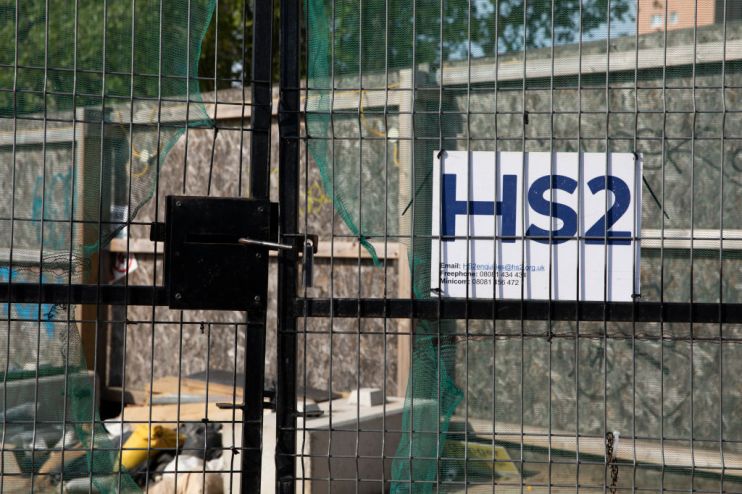HS2: New controllers needed on the nation’s biggest train set

Only last month, Boris Johnson gave HS2 the official green light. But, despite HS2 Ltd being headed up by at least 47 staff paid more than the PM, the project is already coming off the rails.
Today’s report from the Public Accounts Committee (PAC) highlights that HS2 has gone “badly off course” and costs are spiralling out of control. This is just the latest in a series of damning reports into Europe’s largest infrastructure project, which reveals a complete disregard for accountability over taxpayers’ money.
Read more: HS2 project slammed by MPs’ audit committee
The successful delivery of the project is in serious doubt, having received seven Amber/Red warnings in a row since 2013 from the Infrastructure Projects Authority. Yet chief executive Mark Thurston, who receives a salary in excess of £600,000 per year, was found to have failed “to give an accurate account of the programme’s problems”. No wonder PAC are not convinced that the “Department [for Transport] and HS2 Ltd have the skills and capability they need now or in the future.”
Since day one the project has over-promised and under-delivered. The public were sold on the line running 18 trains per hour (tph) at speeds of up to 400 kilometres per hour (km/h). Now, at best we will get 14 tph and speeds of 360 km/h will only be possible on 60 per cent of the route. Even now, the PAC report lays out the “huge uncertainty” surrounding the upgrade of Euston station. The promised benefits are disappearing.
Then there’s the cost. As the report acknowledges, a “lack of transparency has undermined public confidence”. It points the finger squarely at the Permanent Secretary for failing to provide a “clear warning that the programme was going off-course and value for money was at risk”. No surprise though, as those in charge have always been reluctant to come clean about the true costs. We’ve come a long way since Lord Adonis set the price tag at £28 billion. The Adam Smith Institute and infrastructure specialist Michael Byng now calculate the figure at £113 billion (including rolling stock). With the benefit-cost ratio at a measly 0.78, that would see 22p in every £1 spent wasted.
This prediction is looking increasingly certain. The current crisis will likely lead to some major changes in the way we work. Businesses have found that they can operate remotely and some large firms are questioning if they need expensive real estate in major cities. The arguments about increased rail capacity and city connectivity are going out of the window. And, as the PAC rightly points out, the construction challenges of HS2 could have implications for the wider rail network and passengers. Far better surely to concentrate on superfast broadband and fixing existing transport infrastructure, which people urgently need.
Given the woeful performance of HS2 Ltd, the final bill could be in excess of £150 billion. The government should have used the crisis as an opportunity to slam on the brakes, but instead steamed ahead, promising to get a grip. The PAC remained unconvinced they are doing what is required to improve management of infrastructure projects. As our own research has shown, project managers who fail to acknowledge the scale of the problem will only increase the risk and amount of cost overruns. An analysis of megaprojects, mainly in Europe and North America, showed that rail projects see costs escalate by an average of 45 per cent.
To avoid this mega bill coming down the tracks, the HS2 minister Andrew Stephenson must act. Mark Thurston and the rest of the HS2 gravy train should be subject to proper scrutiny, and if their answers don’t stack up, they should be handed their P45s.